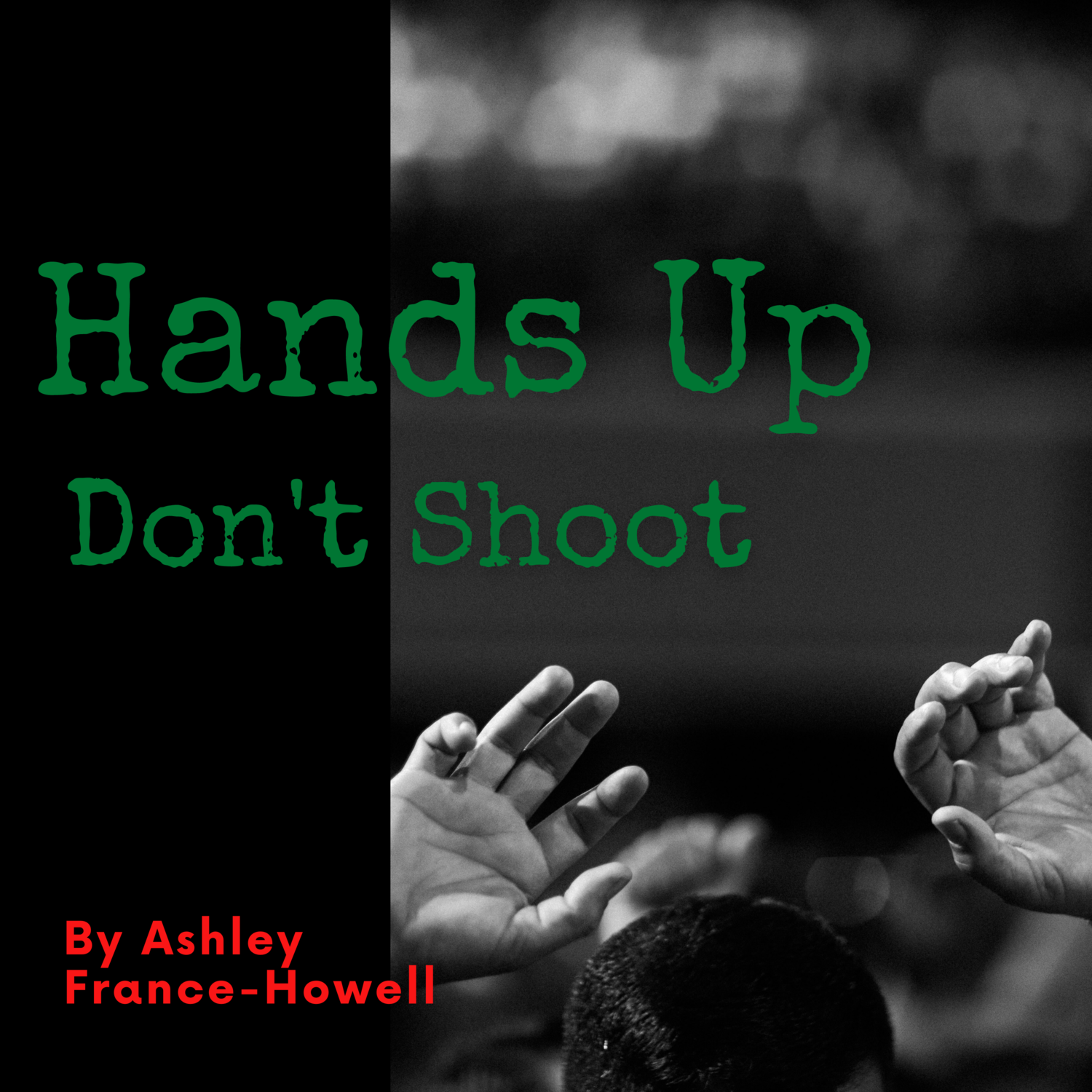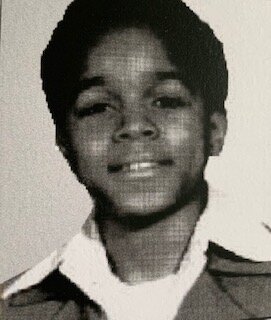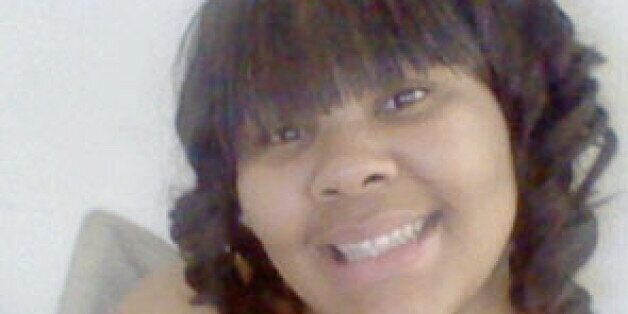Episode 2 - Rekia Boyd & Randolph Evans
Two young lives gone, and two groups of people that witnessed their friend’s last moments. Listen to find out how Rekia Boyd and Randolph Evans came face to face with the police officers that ended their lives.
Transcript
Hey, family! Welcome to the Hands Up, Don't Shoot podcast where I, your host, Ashley France-Howell, tell the stories of Black victims of police brutality. I've got a couple of updates for you guys today. The Hands Up, Don't Shoot podcast is now on social media. You can find us on Instagram at HUDSpod. That's at HUDSpod. And you can find us on Facebook by searching for the Hands Up, Don't Shoot Podcast group. And! Can I get a drum roll please? We have a website! It's www.hudspod.com. That's www.hudspod.com. You can find out more about me and the podcast there. That's all the updates I have for today.
And with that being said, I want to welcome you to episode two. Today I'll be discussing the cases of Rekia Boyd and Randolph Evans. Rekia Boyd was born on November 5 1989, in Chicago, Illinois. But her family later, left the Southside of Chicago, and they relocated down to Dalton, Illinois, a Chicago suburb. Her older brother Martinez Sutton remembers Rekia as quote “sweet and trusting to a fault.” He said that she was an excellent cook. And her favorite color was yellow. Rekia was known to have never met a stranger. Whenever she traveled, she would quickly become friends with the new people she had met. She was friendly and lit up a room.
On March 21, 2014, Rekia was hanging out with friends at Douglass Park. Douglass Park is located in western Chicago and was initially named after Stephen A. Douglas, with one s, who was a US senator in the late 1840s into the early 1850s. But just last year, in 2020, the neighborhood residents wanted it to be named after Frederick Douglass, and his wife, Anna Marie Douglas. Now the park is Douglas park with two S's.
Rekia and her friends were having a few drinks, listening to music, and just having a good time at a party at the park. Later that evening, the four friends begin heading out of the park, and at about the same time. Dante Servin, who was an off duty Chicago police officer, was heading towards the park. A neighbor had called the police to complain about noise in the area so he decided to respond to it, since it was near where he lived anyway. So, I'm going to admit that I did take issue with this at first. I figured if you are off duty then why are you responding to police calls? So I did some digging, and I learned that when officers are sworn in, they become a law enforcement officer at all times. So whether they're on duty or off duty, they have full authority in their jurisdiction. But different agencies and different jurisdictions have different policies and procedures on how things should be handled when you're on duty versus off duty. So that was definitely an interesting find for me.
Serven approached Rekia and her friends in his car as they were leaving the park. And what comes next is all hearsay, so we are looking at the different sides to the story. When Servin approached the group, there was a heated exchange of words. One of Rekia’s friends said that he tries to buy drugs from them. And if this is true, I'm wondering if it was maybe a ruse to try to get the friends to break the law so Servin would have an excuse to arrest them. He wasn't in his duty vehicle, and he was dressed in plainclothes so no one would have known that he was a police officer. But Servin said that he approached the group, announced himself as law enforcement, and then told them to keep the noise down. Antonio Cross, one of Rekia’s friends was either on his phone or pulled his phone out, and he used it to wave Servin off. And the group walked away.
While sitting in his car, Servin reached over his left shoulder with his gun and fired five times at the group. So from what I understand, he's sitting, of course, in the driver's seat, facing forward, and using his right hand he takes his gun, puts it over his left shoulder to fire out of the driver's side window. The group ran away, trying to escape the flying bullets, but one of them hit Antonio in his thumb. And another hit Rekia in the back of her head. Rekia was taken to the hospital for medical care but unfortunately she did not make it.
Servin said he fired at the group because he feared for his life. And that was because he saw one of the men pull a gun out. But after investigations, they realized that there was never any firearm, and It was just Antonio’s cell phone.
Rekia was 22 years old.
Immediately after the shooting, Servin was placed on administrative duty, not administrative leave. So by being on administrative duty, Servin was able to continue to work and receive a paycheck, but he had to stay in the precinct. So basically administrative duty equals desk duty. Over a year later, In November of 2013 Servin was charged with involuntary manslaughter, reckless discharge of a firearm, and reckless conduct stemming from a shooting. His bench trial, which is a trial by a judge, not by jury, took place almost a year and a half later in 2015.
The environment was pretty intense. Supporters of Rekia and anti racist organizations filled the courtroom inside and out. They filled the courthouse, and they were all dressed in yellow which was Rekia’s favorite color. And I’m sure that was a sight to see. But on the other side, there was also an increase in police presence. Apparently they kind of doubled down on the police force at the courthouse. They had police at all entrances, exits, around the house, and I'm assuming they may have thought something would have gone down, or they just wanted to have their presence seen so that nothing happened. But that's what we're seeing at the courthouse.
Cook County Judge Dennis Porter seemed to have quickly made his mind up about the decision he was going to make. It's been reported that he began talking about acquittal even before the defense was going to present their case. Now, I want to quote this article I read because his reason for acquittal is pretty mind boggling to me. It said quote, “the judge declared that because the core definition of involuntary manslaughter includes not only unintentional death, but also a reckless state of mind, and since Illinois state law states that the act of firing a gun into a group of people is intentional and by definition not reckless, Servin’s actions may have qualified for a first degree murder charge, but not manslaughter. Since the state charged him with manslaughter instead of murder, the judge had no choice but to direct an acquittal, and let Servin walk free.” End quote.
I, I'm not really sure what to say about that. I mean, basically they saying that the, the judge was like, if only you guys came to me with a first degree charge, then I would have convicted him, but since it's only manslaughter, what he did didn’t qualify for manslaughter, so I'm going to let him go. A year after Servin’s acquittal, he resigned from the Chicago Police Department in May of 2016, and this was days before the department hearing regarding his job status. And so instead of risking getting fired, he decided to leave first, so that he will be able to keep his pension and benefits.
In 2019 Servin requested that his record be expunged. But that was denied. So he then requested that his records be sealed, but that was also denied. While Rekia’s family never received a justice for her murder, they did receive a $4.5 million wrongful death settlement from the city of Chicago. But no amount of money can bring Rekia back. That was the life and death of Rekia Boyd.
Now going to tell you the story of Randolph Evans. Randolph Evans, more affectionately known as Randy, was born on May 4, 1961 in Brooklyn, New York. He was son of Raymond Evans, and Annie Evans Brannen. And his older brother was named Raymond Evans. Randy and his family were living in the Cypress Hill housing development in Brooklyn, and he was known by his neighbors as a friendly boy who never caused any trouble. At the time of his death, Randy was a ninth grader at Franklin K. Lane High School, which was also in Brooklyn.
On November 26, 1976, which was also Thanksgiving day, Randy and five of his friends were hanging out in the neighborhood. That evening, NYPD officer, Robert Torsney and his partner, Officer Matthew Williams, were responding to a call of a man with a gun in one of the apartment buildings. When they arrived at the apartment in question, they learned that officers had already arrived beforehand and resolved the situation. There wasn't a gun, but there was some sort of family argument, but it was handled, and the officers left shortly after.
As Torsney and his partner left the building, Torsney encountered Randolph and his friends out front. And his partner, Williams, headed back to the car. And again, this is where we circle back to the different sides of the story. One of Randy's friends named Mark Williams claimed that Randy had asked Torsney if he had gone into apartment 70. And from what I'm understanding, apartment 70 was where Randy lived. Torsney replied, quote, “damned right,” and shot Randy point blank in the head. Mark also said that after Randy fell Torsney flashed his flashlight in Randy's face, turned around, and started walking back to his patrol car, where his partner was waiting for him.
The officers who responded to the domestic violence incident earlier, were still in their cars, and they said they saw a brief exchange between Randy and Torsney, but they couldn't make out what was said. They said they just saw him pull out his revolver and shoot Randy. They started calling out to him and telling him to stop walking and asking him what happened. But he just ignored them, and continued to walk to his car. When Torsney got to his car and got in,and his partner Williams asked Torsney what he did, Torsney replied, quote, “I don't know Matty. What did I do?” Randy was rushed to Brookdale hospital, but he did not make it.
Randy was 15 years old.
Torsney was arrested that night, and charged with second degree murder. His bail was set at $20,000, but it was posted by the Patrolman’s Benevolent Association, which is a New York City police union. Torsney was indicted on charges of second degree murder on the same day as Randy's funeral on November 30,1976. His trial began in 1977, almost a year after the shooting. Torsney’s defense argued that he had an epileptic condition, and at the time of Randy's killing he was having an episode. The jury was convinced that this was true, and on November 30, 1977, Torsney was found not guilty by reason of insanity. He was ordered to be committed to Creedmoor psychiatric center in Queens, New York.
On December 20, 1978, about a year later, Torsney was released by order of a Brooklyn State Supreme Court. They concluded that he was no longer a threat to society, so he was able to leave the center and go free. He filed for a $15,000 per year disability pension, but it was denied after he was let go from the police department. While losing a loved one is always hard, there was some good that came from Randy’s untimely death.
The community boycotted local businesses and had demands they wanted met. And one of those demands was for the businesses to help fund a scholarship in Randy's name for five years. It will be called the Randolph Evans Memorial Scholarship. When the sixth year came up, the businesses agreed to fund it for 20 more years because it was a program they really liked, and felt good standing behind. In 2019, they celebrated 40 years of the Randolph Evans Memorial Scholarship. So there you have it: the stories of Rekia Boyd and Randolph Evans.
Before I go, I do want to give a shout out to my husband, Ra’Shawn, who has been helping me so much with the research. When I told him what I wanted to do, he said, “give me the names, and I'll get started.” So again, thank you, thank you so much. And I want to thank you for listening.
You can find me on Facebook by searching for the Hands Up Don't Shoot podcast group, and on Instagram at HUDSpod. You can send me an email at hudspod@gmail.com. And you can check out my website at www.hudspod.com. And remember, HUDSpod is spelled HUDSPOD. Don't forget to subscribe to make sure you get the latest episodes, and if you don't mind, please leave me a five star review. Stay safe, and I'll see you next week.


